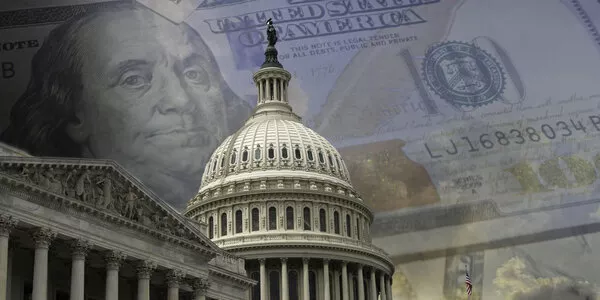
Weekly Update - Frankfurt, Rome and Brussels – a tale of three cities
Euro zone GDP shrank a non-annualised -3.8% in the first quarter, much weaker than the -1.2% registered in the US economy over the same period. Moreover, the second quarter is set to be much weaker, given that lockdowns only commenced in late Q1 – ECB President Lagarde fears the decline could reach -15% and that the economy won’t reach its “new normal” until next year. At its meeting in Frankfurt yesterday, the ECB kept its rates and asset purchases unchanged and instead focused on ensuring the banking system will have adequate liquidity. To that end, the ECB expanded its programme of lending to banks at ultra-low rates. For example, it cut the rates available for its Targeted Longer-Term Refinancing Operations to up to -1.0% for banks that keep the size of their loan book unchanged. This makes sense – banks provide 80% of financing needs for businesses in Europe versus 19% in the US. The ECB disappointed investors by not increasing the size of March’s Pandemic Emergency Purchase Programme (PEPP). This shouldn’t have come as a surprise – it has only bought around €120bn so far out of the planned €750bn total so there was no urgency to act. However, investors worry that the ECB has been much less proactive than the US Federal Reserve (Fed) – the ECB’s total balance sheet has increased by €655bn since end-February while the Fed’s is up $2,497bn over the same period. The ECB did provide some reassurance by saying it is “fully prepared” to increase the PEPP and to “adjust its composition, by as much as necessary and for as long as needed”. And Mme Lagarde also left the door open to buying “fallen angel” bonds (i.e., issues which have recently lost their investment-grade rating), an option which could prove of critical help to countries like Italy. This week, Fitch’s downgrade took Italian debt to just one notch above high yield or speculative grade. With the other two major rating agencies – S&P and Moody’s – having reaffirmed Rome’s rating last week, there is little risk of it losing investment grade status for now. Nonetheless, today’s recession is again calling the sustainability of Italy’s finances into question. Nominal GDP growth has fluctuated between 0.6% and 3.0% since the end of the euro zone crisis, as has the average cost of servicing its debt as a percentage of GDP (see left-hand chart). This has enabled Italy to keep its debt to GDP ratio rather stable. However, the IMF Fiscal Monitor now sees Italy’s debt to GDP ratio reaching 155.5% this year, up from 134% in 2019. Although Italy has successfully kept up a primary budget surplus (i.e., a government’s income minus its spending but before debt service) in recent years, it will disappear in 2020, given the expected collapse in tax revenue and dramatic increase in fiscal spending. While the ECB’s purchases have been skewed recently to favour Italian bonds (see right-hand chart), this has not been sufficient to return yield spreads to end-2019 levels. Given the scale of the crisis, Rome needs more help – according to Christine Lagarde, an “ambitious and co-ordinated [euro zone] fiscal stance is critical”. In that respect, the failure of the European Council meeting organised by Brussels last week to approve a common recovery fund is problematic – arguably, it is in times like these that the EU should show most solidarity for its weakest members.
Bottom line. The history of the European Union is littered with examples of leaps forward only being achieved at the last possible minute. Recent statements from European Commission head Ursula von der Leyen and Angela Merkel raise some hope that the Gordian Knot preventing joint support for Italy and Spain might at last be cut. Until that time however, Italian yields spreads over German Bunds are likely to remain uncomfortably high.
Read full article





